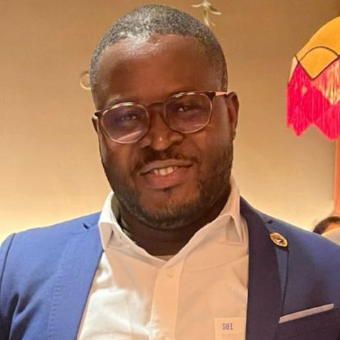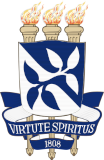PROPOR 2026: 17th International Conference on Computational Processing of Portuguese.
Salvador - Bahia April 13th to 16th 2026
The International Conference on Computational Processing of Portuguese (PROPOR) is the main event in
the area of human language processing that is focused on theoretical and technological issues of
written and spoken Portuguese and Galician. The meeting has been a very rich forum for the exchange of
ideas and partnerships for the research and industry communities dedicated to the automated language
processing, promoting the development of methodologies, resources, and projects that can be shared
among researchers and practitioners in the field.
We call for papers describing work on any topic related to computational language and speech
processing of Portuguese and Galician by researchers in industry or academia. Topics of interest
include, but are not limited to:
-
Natural language processing tasks (e.g. parsing, word sense disambiguation, coreference resolution)
-
Natural language processing applications (e.g. question answering, subtitling, summarization,
sentiment analysis)
- Natural language generation
- Information extraction and information retrieval
-
Speech technologies (e.g. spoken language generation, speech and speaker recognition, spoken
language understanding)
-
Speech applications (e.g. spoken language interfaces, dialogue systems, speech-to-speech
translation)
- Resources, standardization and evaluation (e.g. corpora, ontologies, lexicons, grammars)
- NLP-oriented linguistic description or theoretical analysis
- Distributional semantics and language modeling
-
Portuguese language varieties and dialect processing (including the language varieties of Angola,
Brazil, Cape Verde, East Timor, Galicia, Guinea-Bissau, Macau, Mozambique, Portugal, and Sao Tome
and Principe)
- Multilingual studies, methods, applications and resources including Portuguese/Galician
PROPOR 2026 will be held from April 13th to April 16th at Salvador - BA, Brazil, the place of contact
between the Portuguese language with both indigenous languages of Brazil and the African languages
brought to Brazil with the enslaved people coming from Africa, a contact that deeply influenced
Brazilian Portuguese and culture.
PROPOR 2026 will be the 17th edition of the biannual PROPOR conference, hosted alternately in Brazil
and Portugal. Past meetings were held in Lisbon, PT (1993); Curitiba, BR (1996); Porto Alegre, BR
(1998); Évora, PT (1999); Atibaia, BR (2000); Faro, PT (2003); Itatiaia, BR (2006); Aveiro, PT
(2008); Porto Alegre, BR (2010); Coimbra, PT (2012); São Carlos, BR (2014); Tomar, PT (2016);
Canela, BR (2018); Évora, PT (2020); Fortaleza, BR (2022); and Santiago de Compostela, GZ
(2024)
Mandatory Reviewing Workload
As the pace of research in the field continues to increase, we need to strengthen the commitment to
reviewing for each paper submission. During the submission process, authors will be required to
specify which co-authors are committing to cover reviewing in the event.
Ethics Policy
Authors are advised to follow the ACL Ethics Policy for submission, which can be found
here
Authors are also strongly advised to follow the ACL guidelines for generative AI assistance in
authorship, which can be found
here
Important Dates (Update!)
- Full and short paper submission deadline: Jan 9th, 2026 (23:59 GMT-12)
Dec 7th, 2025 (23:59 GMT-12)
- Notification of paper acceptance or rejection: Feb 11th, 2026
- Camera-ready papers due: Mar 15th, 2026
- Conference: April 13th - 16th, 2026
Submissions
Submissions should describe original, unpublished work. Authors are invited to submit two kinds of
papers:
-
Full papers – Reporting substantial and completed work, especially those that may contribute
in a significant way to the advancement of the area. Wherever appropriate, concrete evaluation
results should be included. Full papers can have up to 8 content pages + 2 pages for references.
-
Short papers – Reporting small, focused contributions such as ongoing work, position papers,
potential ideas to be discussed, negative results, or an interesting application nugget. Short
papers can have up to 4 content pages + 1 page for references.
Each submission will be evaluated by at least two reviewers. As reviewing will be double-blind,
submitted papers must be anonymized. That is, they should not contain the authors' names and
affiliations. Authors must avoid self-references that reveal identity, like "We previously showed
(Freitas, 1991) ...". Instead, they should prefer citations such as "Freitas (1991)
previously showed ...". Separate author identification information will be required as part of
the submission process. At submission time, only PDF format is accepted. For the final versions,
authors of accepted papers will be given 1 extra content page to incorporate the reviews' suggestions.
Authors of accepted papers will be requested to send the source files for the production of the
proceedings.
While recent editions have only accepted submissions in English, this year we are pleased to also
accept papers written in Portuguese, reaffirming our commitment to promoting scientific exchange in
our language.
At submission time, only PDF format is accepted. For the final versions, authors of accepted papers
will be given 1 extra content page to incorporate the reviews' suggestions. Authors of accepted papers
will be requested to send the source files for the production of the proceedings. All submitted papers
must conform to the ACL style guidelines and use the LaTeX stylesheets below:
Camera-ready Submission Instructions
The camera-ready version of the papers, as well as the copyright transfer form, should be submitted through the CMT platform.
Authors should update their papers considering the reviewers' suggestions, using the updated Camera-Ready Stylesheet provided below.
Multiple-submission policy
For submissions that have been or will be submitted to other meetings or publications, this
information must be provided at submission time. If a submission is accepted, authors must notify the
program chairs, indicating which meeting they choose for presentation of their work. Papers that will
be (or have been) published elsewhere cannot be accepted for publication or presentation.
Papers can be submitted through the CMT submission system:













